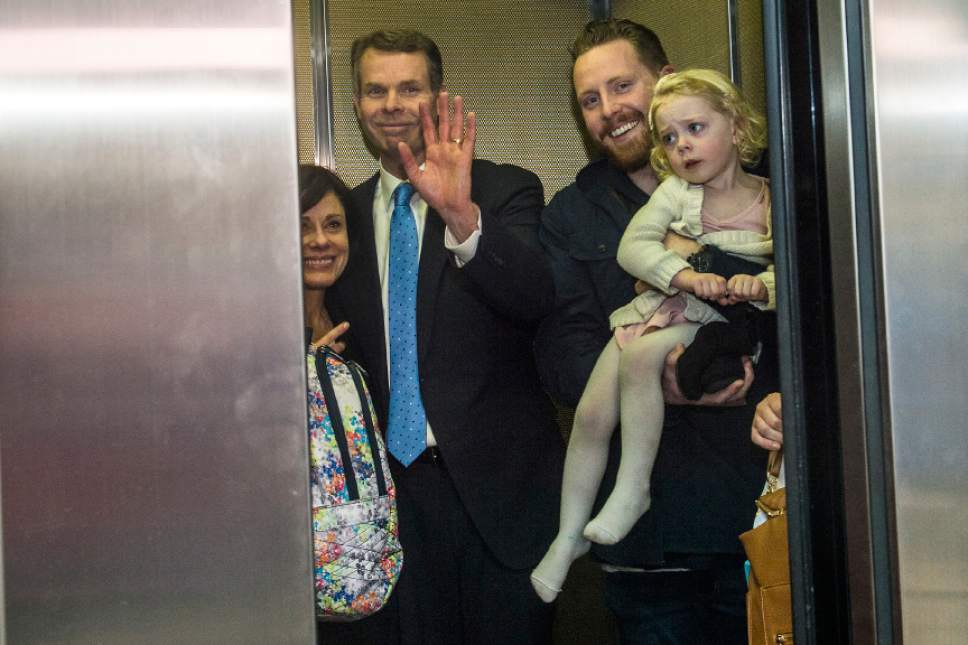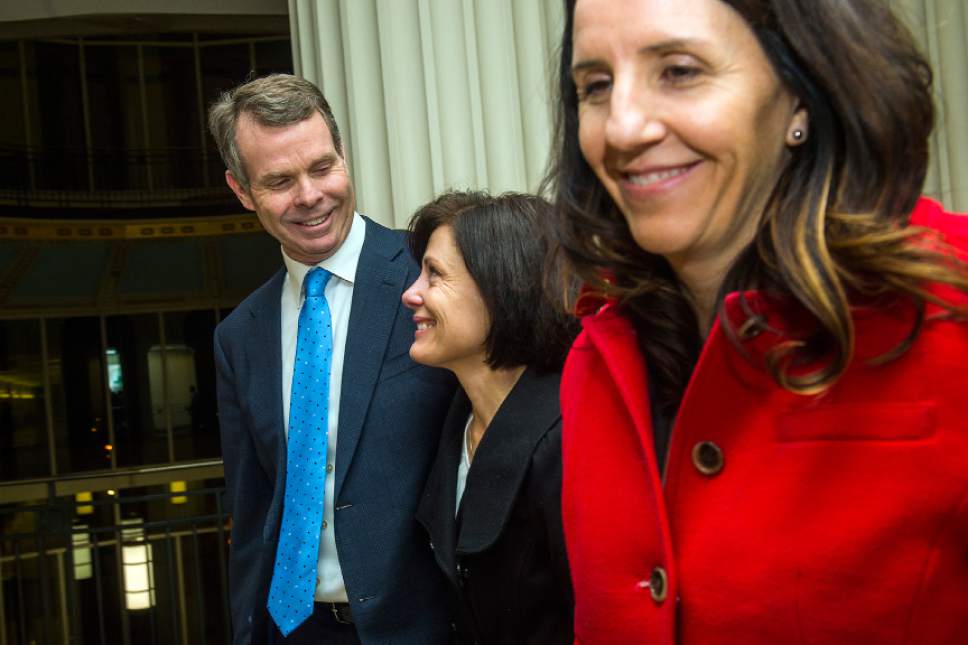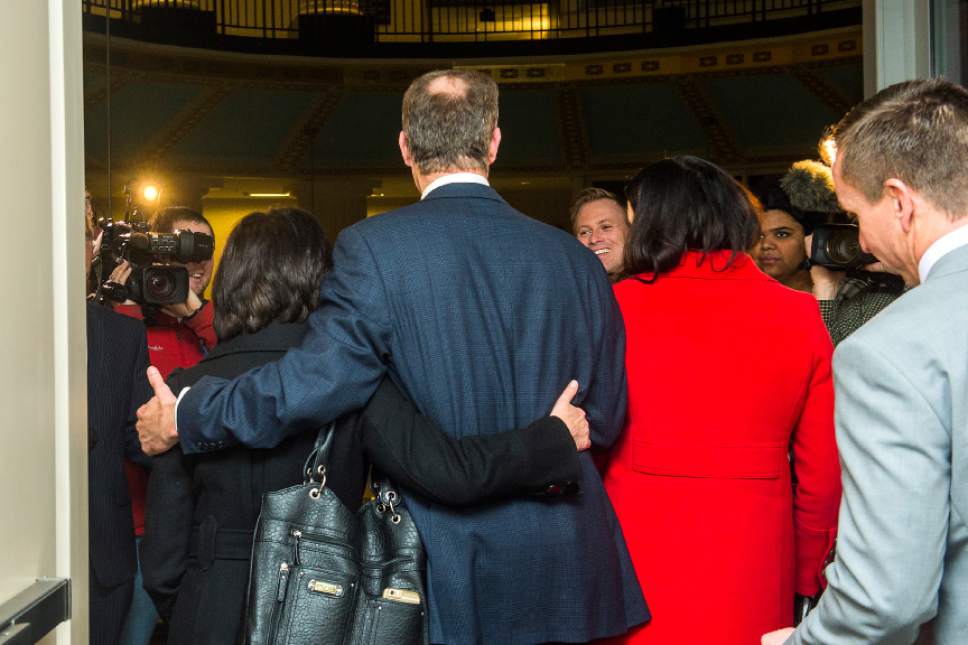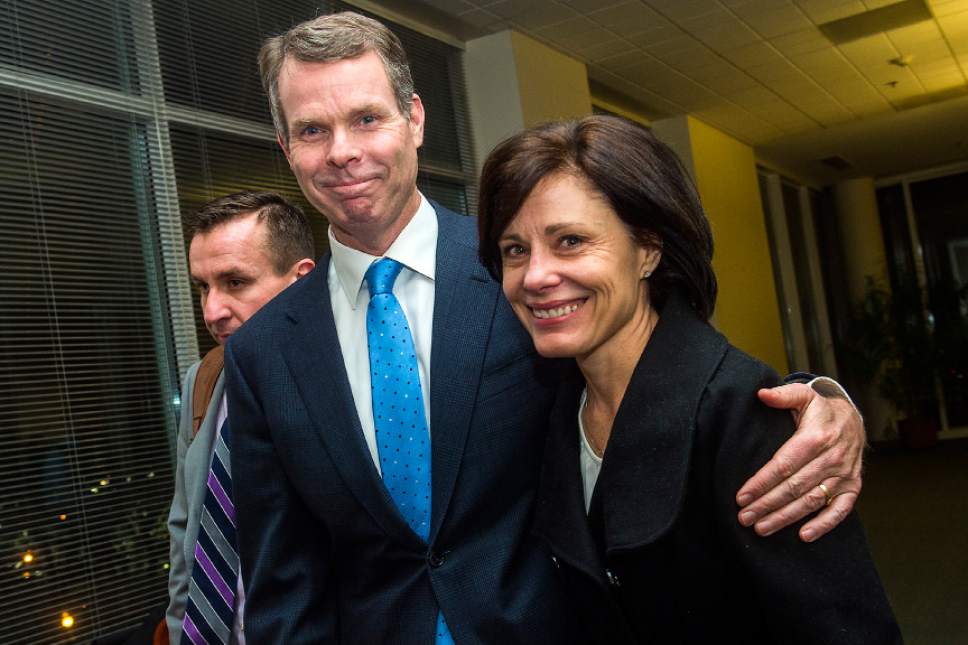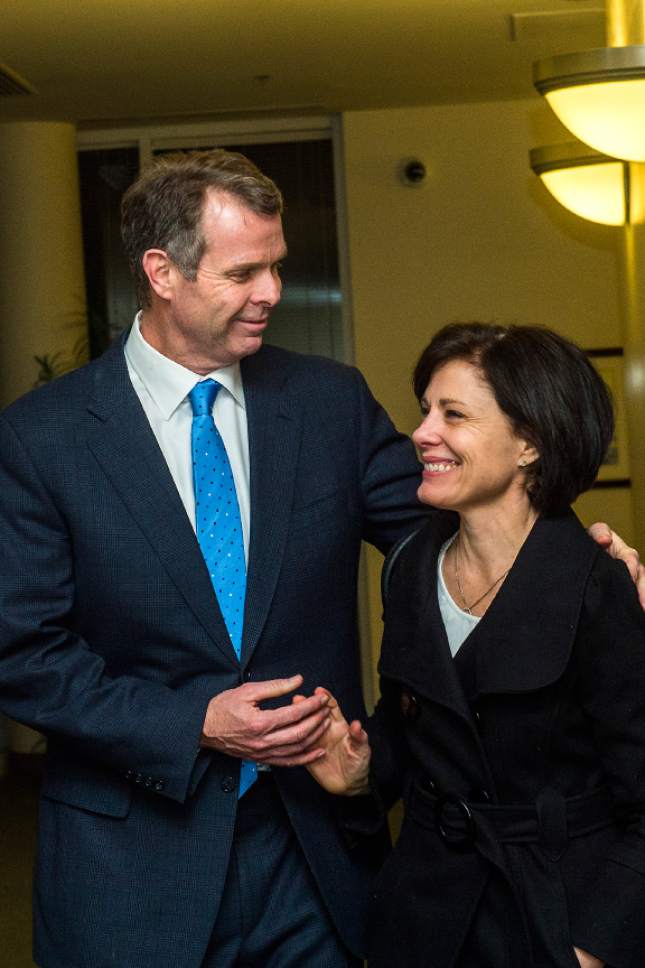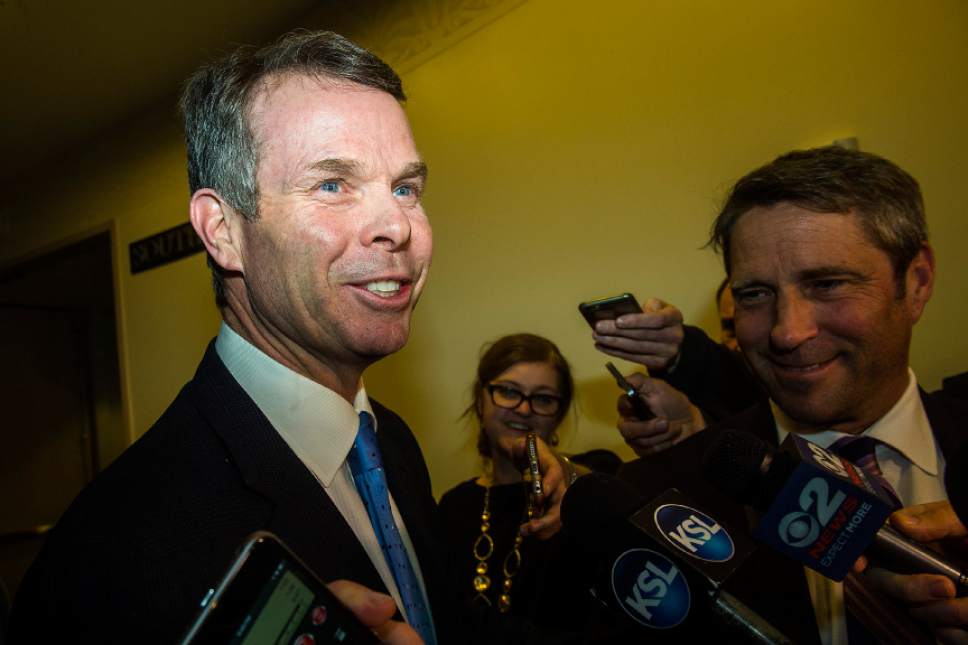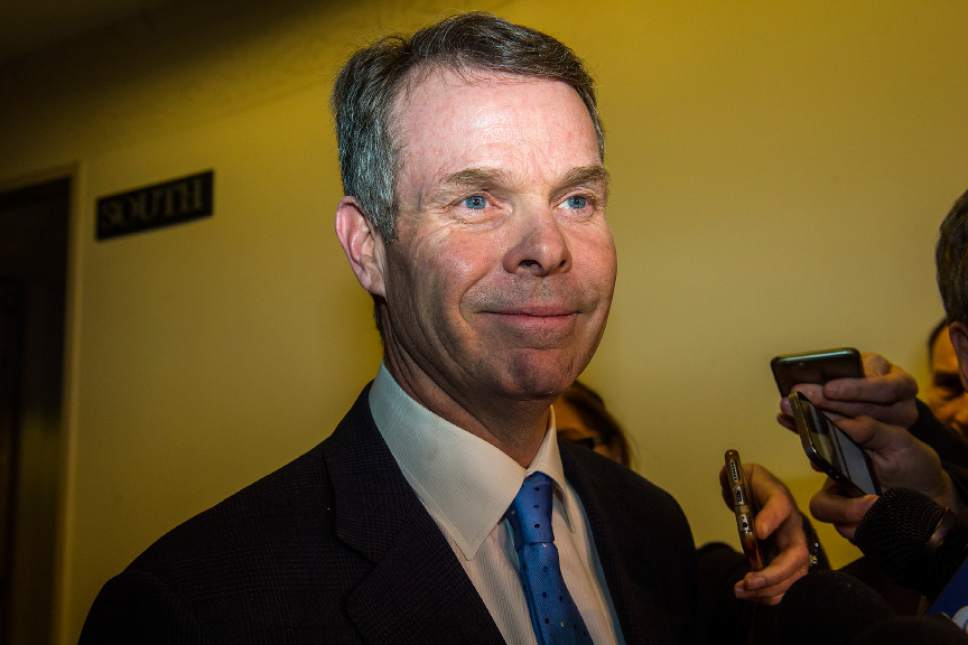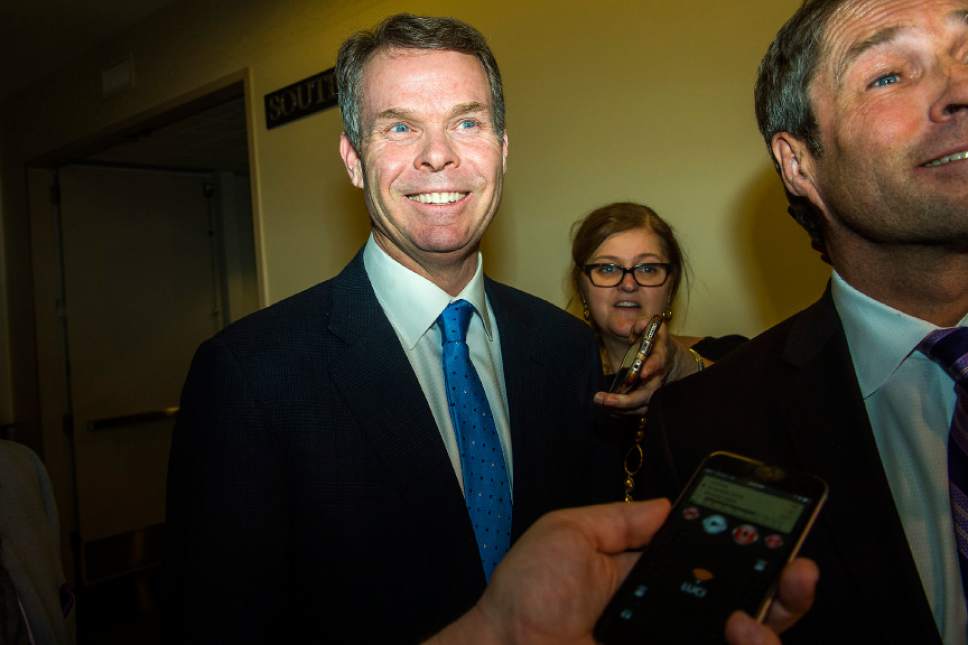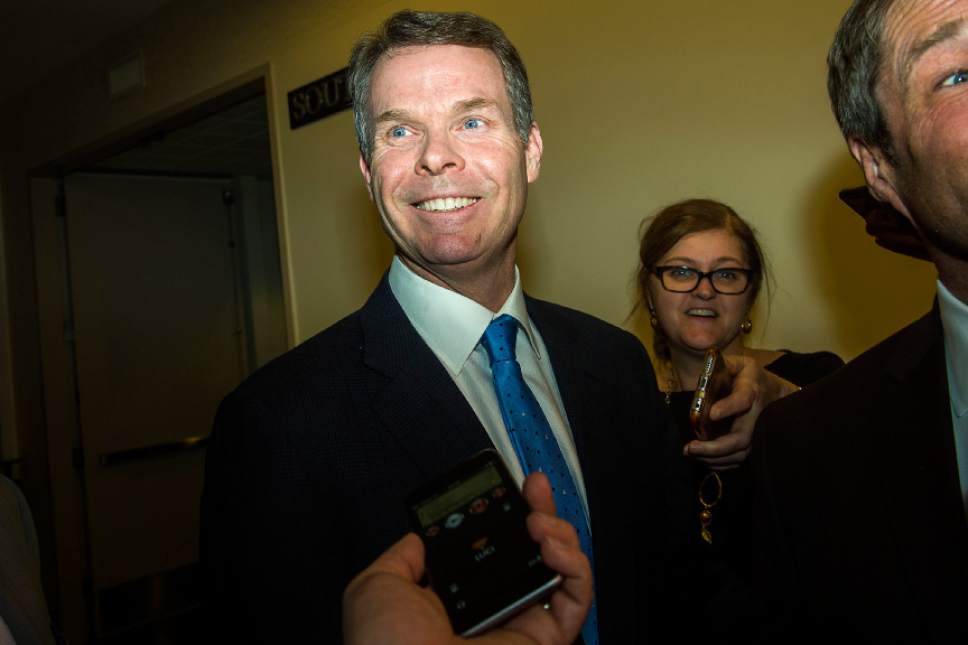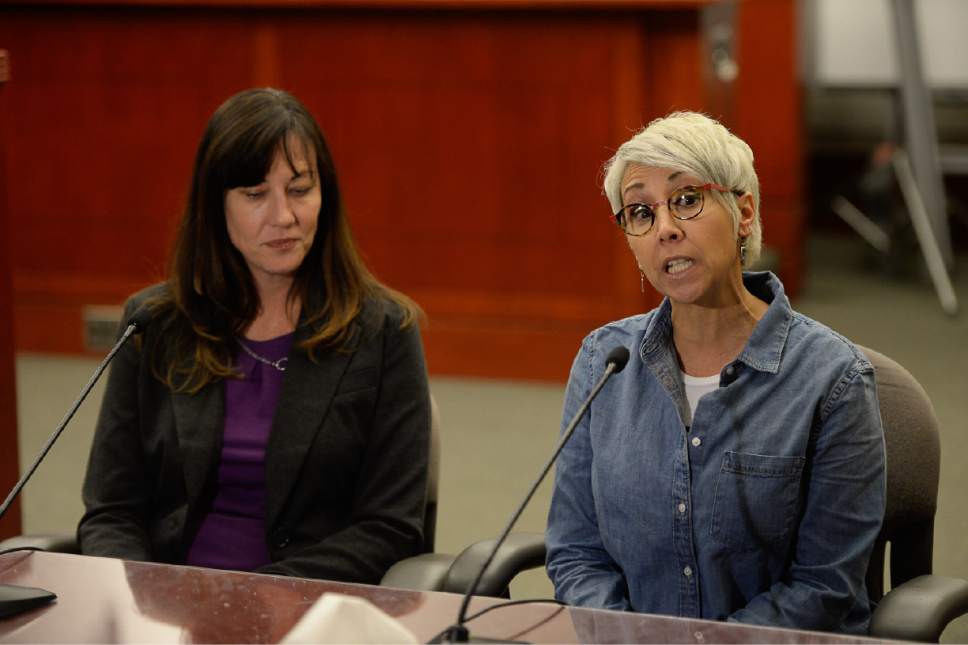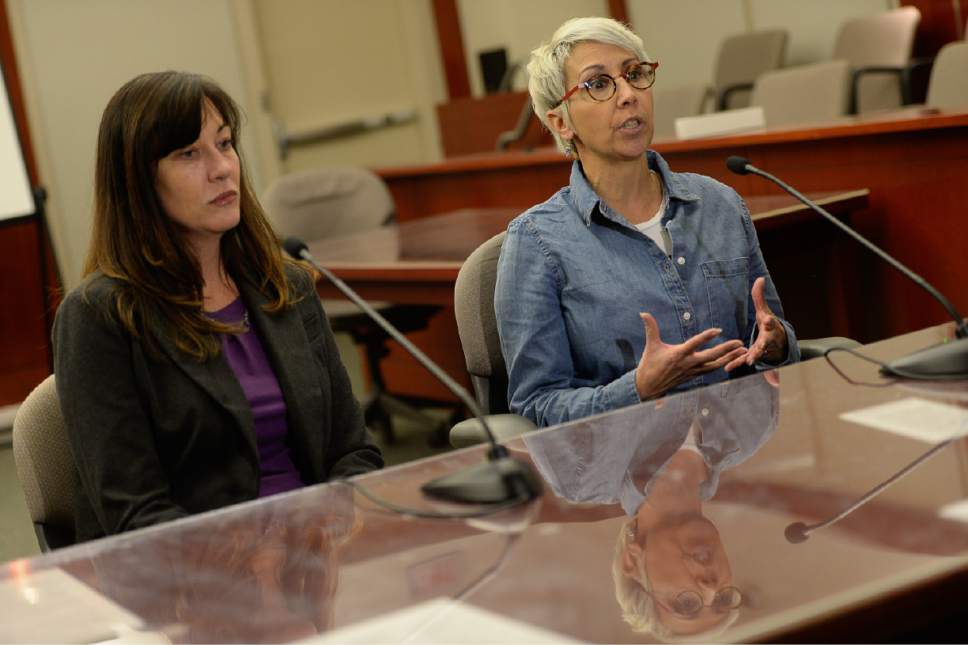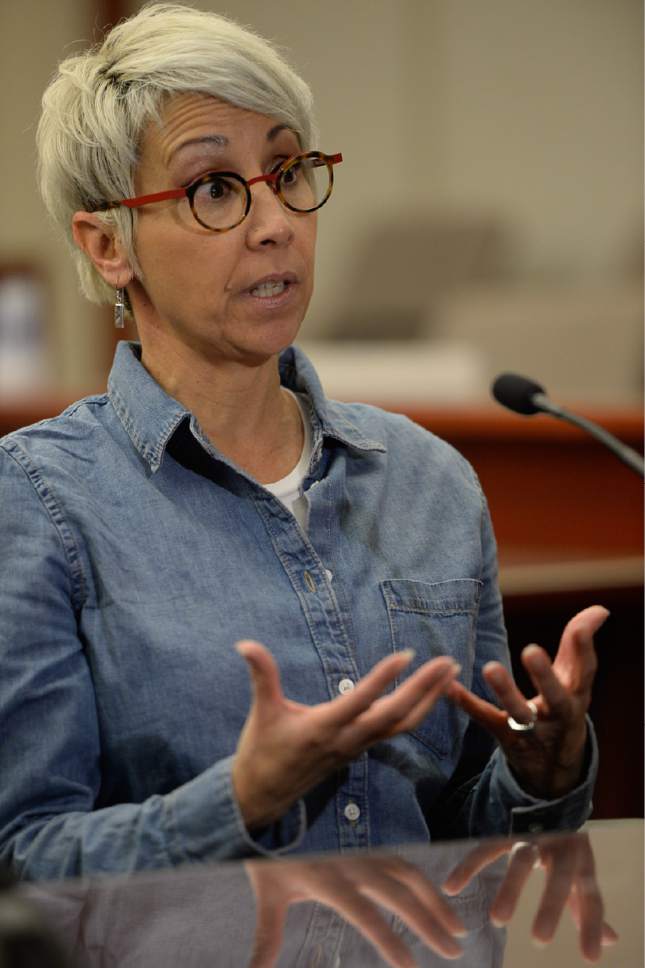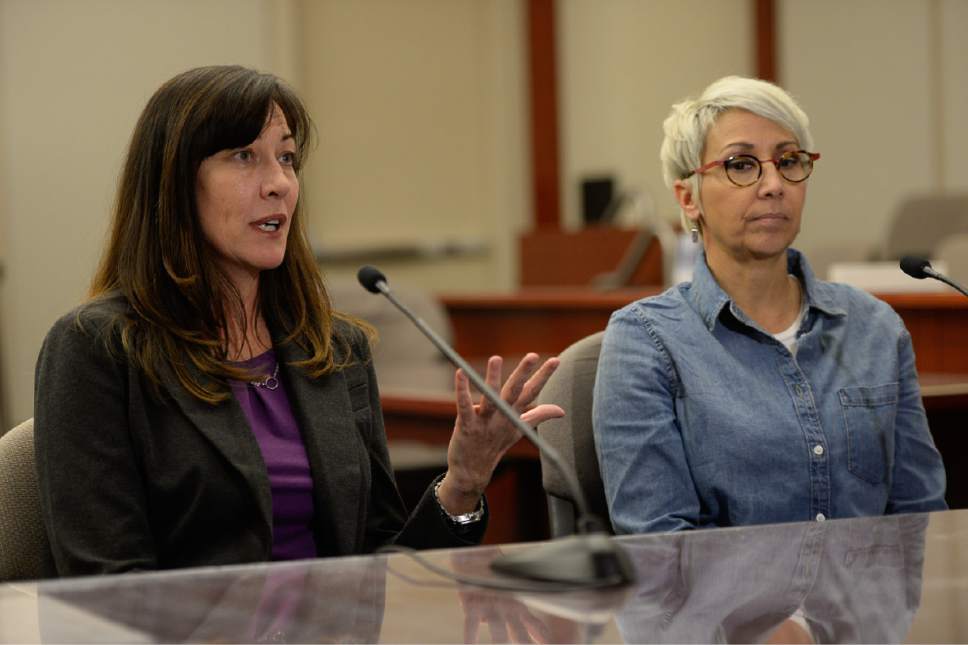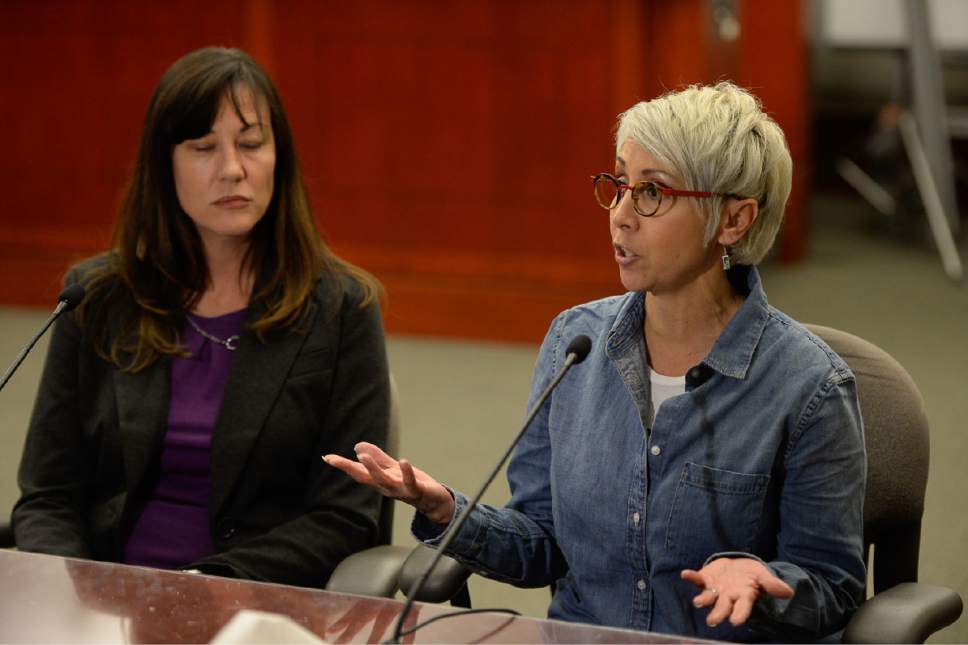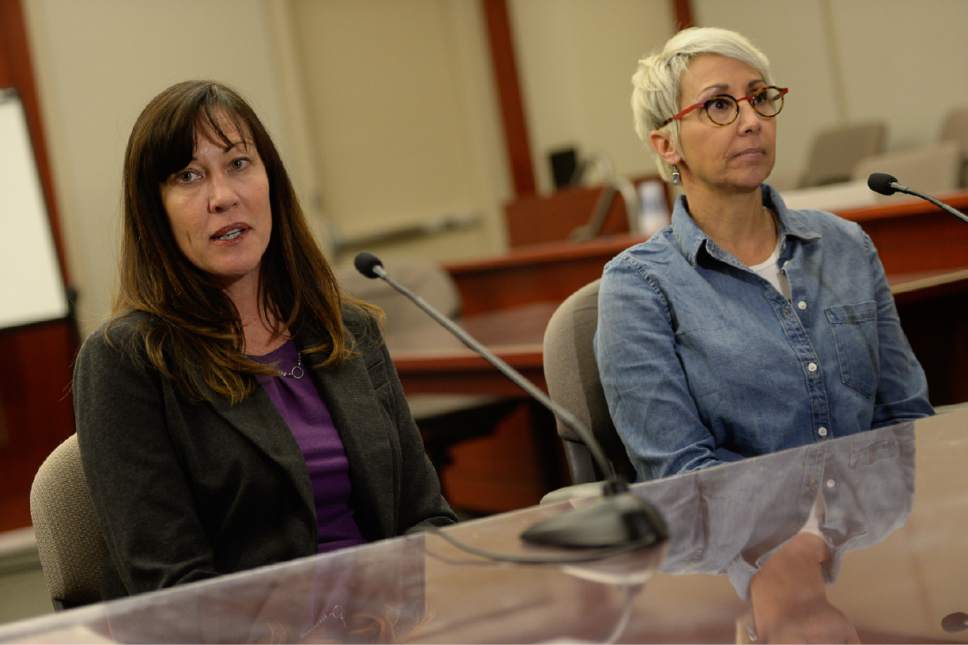This is an archived article that was published on sltrib.com in 2017, and information in the article may be outdated. It is provided only for personal research purposes and may not be reprinted.
The burden of four years living under a cloud of suspicion and an intense four-week trial began to lift for former Utah Attorney General John Swallow with the sound of two words: "Not guilty."
Third District Judge Elizabeth Hruby-Mills repeated those same words eight more times Thursday evening, rendering the verdict handed up by a jury of five men and three women, who wrestled with the public corruption-related charges for more than 12 hours before acquitting the former Republican officeholder on each of nine felony and misdemeanor counts.
Swallow was stoic before the judge's reading of the first count, tearful with each successive verdict and joyful when his vindication was complete. He hugged his lawyers and turned to offer Suzanne, his wife of 30 years, a broad, relieved smile.
"I'm speechless," Swallow said after he left a courtroom filled with elated, but weeping family and friends. "We're just so grateful, and the system did work."
He praised his defense team, expressed gratitude for a Constitution that protects the rights of the accused and said he was glad his struggle had come to an end.
As for what's next, Swallow said his focus would be on loving his family and the friends who had stood by him through the ordeal. "And to maybe get a good night's sleep for the first time in a couple of years."
The outcome was a dramatic end to the biggest political scandal in Utah history — one that mushroomed out of multiple investigations, including probes by the Utah House, the attorney general's office, the lieutenant governor's office and by state and federal criminal agencies.
Prosecutors brought criminal charges against Swallow, his immediate predecessor, Mark Shurtleff, and Shurtleff's so-called "fixer," Tim Lawson, but ultimately got nothing for the effort.
Shurtleff's case was dismissed last July. Lawson died a month later with charges still pending, and Swallow was cleared of any wrongdoing.
Shurtleff took to Twitter within minutes of his handpicked successor's victory: "#justice! #truthwillout! Shame on @SimGillDA and @fbi and Utah Dept of Public Safety for their #twistedjustice."
Salt Lake County District Attorney Sim Gill said he was disappointed in the verdict, but not the process.
"We needed to get this into the proper forum — that was the only way to get any closure on this issue," Gill said. "It was important to bring it to a conclusion."
Otherwise, he said, "it's not fair to the citizens ... or to Mr. Swallow."
The trial began Feb. 7. Over the 14 days of testimony, jurors heard from more than 40 witnesses and saw hundreds of pages of evidence, including phone, email and text messages, bank records, receipts and calendar entries. Among the witnesses were Swallow campaign workers, several Utah businessmen and former colleagues from the attorney general's office.
But prosecutors didn't get everyone they wanted on the stand.
Jeremy Johnson, a St. George businessman whose allegations of an elaborate bribery scheme set off the scandal, repeatedly refused to testify, citing his Fifth Amendment right.
Johnson, who is serving a federal prison sentence after a 2016 conviction on bank charges, was considered critical to the prosecution's case. His silence forced them to drop three of the 13 counts filed against Swallow.
That "did not help us," Gill conceded. "We would have liked that additional element ... that there was this behavior going on."
In a follow-up news release, he said some cases ask jurors to make simple black-and-white decisions. Others involve "various shades of gray."
That's when prosecutors "must nonetheless find their probable cause and follow the facts to wherever they lead," he explained. "This case fell squarely into the latter category."
Two jurors who spoke to reporters after the trial said prosecutors just didn't have the evidence to convict Swallow.
"Without a doubt, almost every time, the evidence just wasn't there to support the allegations," said Salt Lake City resident Melissa Smith.
Juror Sandra Buendia said when the panel pored through the evidence and reviewed the testimonies, there "seemed to be gaps" in the state's case.
"Based on the evidence that was presented — and basically all the evidence," she said, "we weren't firmly convinced ... of his guilt."
Swallow's lead attorney, Scott C. Williams, said the defense won "because the truth was John Swallow was wrongly accused. He had a lot of momentum against him — federal power — and he had a lot pitfalls in the system. We worked through those and got it to a jury and that's why we won."
Williams, who said the testimony of witnesses for the state ended up supporting Swallow's version of events, scolded the investigative methods and the presentation by the prosecution.
"This investigation appears to us to be what was actually corruption," Williams said, "not what John Swallow was involved in."
Davis County Attorney Troy Rawlings, who handled the aborted Shurtleff prosecution, called the verdict "predictable to any prosecutor who bothered to assess the evidence with an objective view and who was not controlled by the United States Department of Justice."
Last summer, Rawlings moved to dismiss the charges against Shurtleff, pointing to a recent U.S. Supreme Court ruling that narrows the prosecution of political corruption, along with his inability to pry evidence out of federal hands and concerns about potential violations of the defendant's right to a speedy trial.
Had Shurtleff gone to trial, Rawlings said in an email, he would have been acquitted as well.
"It's not simply about taking a case to trial so the public can see it, as Mr. Gill has maintained," he wrote. "The process is actually about vetting the evidence, understanding the constitutional issues and getting it right."
Salt Lake County prosecutors had painted Shurtleff as the leader of a three-headed conspiracy, with Swallow as the moneyman and Lawson as the muscle.
The state sought to make that enterprise its case through another key witness, Marc Sessions Jenson. The formerly imprisoned businessman testified that he fell under the trio's thumbs after he was ordered to pay $4.1 million in restitution in a 2005 criminal case brought by the attorney general's office.
Swallow, for instance, accepted three trips to the luxury California resort Pelican Hill on Jenson's dime. But the convicted businessman's assertions that he was extorted were undercut during cross-examination and by testimony from his own former attorneys.
Williams criticized the state for relying on Jenson, whom he called "a career fraudster with 4.1 million reasons to lie."
Hours before the verdict, the defense attorney asked for — but was denied — a mistrial after a question from jurors uncovered an error in the instructions they were given before the start of deliberations.
Jury instruction No. 69 incorrectly stated that Counts 4, 5, 8 and 10 had been dismissed during the trial. It should have said that the dropped counts were 5, 6, 8 and 10.
"Uh-oh," Deputy Salt Lake County District Attorney Chou Chou Collins said when the court realized the error.
Reporter Tiffany Frandsen contributed to this story.


